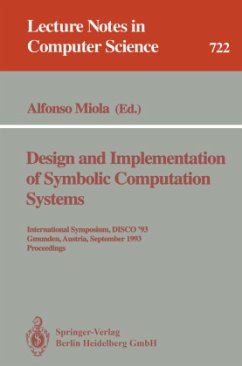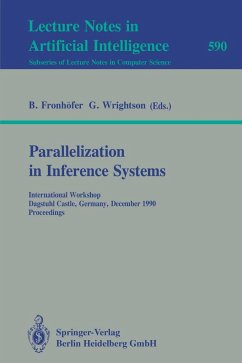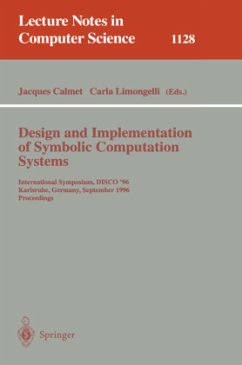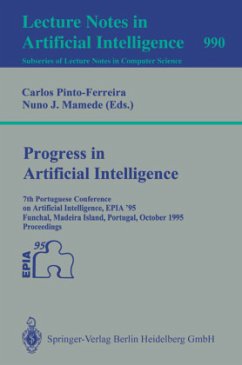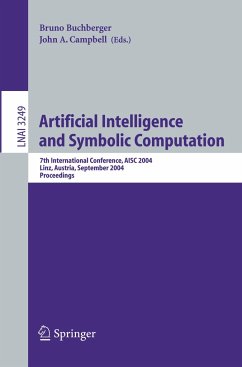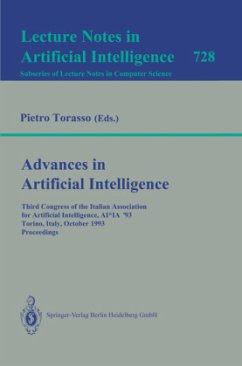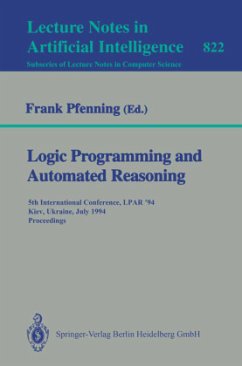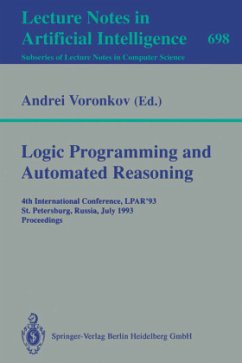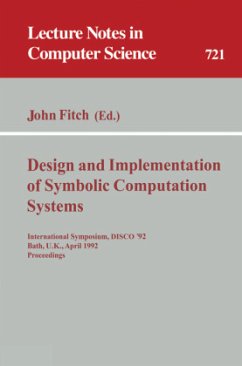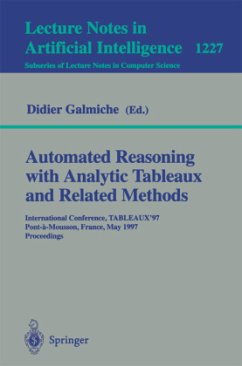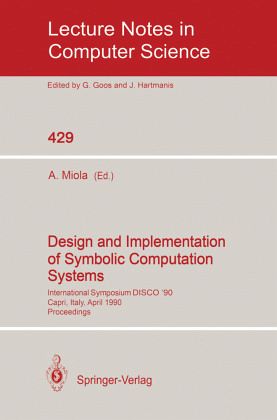
Design and Implementation of Symbolic Computation Systems
International Symposium DISCO '90, Capri, Italy, April 10-12, 1990. Proceedings
Mitarbeit: Miola, Alfonso
Versandkostenfrei!
Versandfertig in 1-2 Wochen
39,99 €
inkl. MwSt.

PAYBACK Punkte
20 °P sammeln!
The growing importance of the systems for symbolic computation has greatly influenced the decision of organizing DISCO '90 which is short for International Symposium on Design and Implementation of Symbolic Computation Systems. DISCO '90 focuses mainly on the most innovative methodological and technological aspects of hardware and software system design and implementation for Symbolic and Algebraic Computation, Automated Reasoning, Software Environments (Languages and User Interfaces), and Automatic Programming. In particular, it includes papers on the design and the development of significant running systems. The general objective of DISCO '90 is to present an up-to-date view of the field, while encouraging the scientific exchange among academic, industrial and user communities of the development of systems for symbolic computation.



